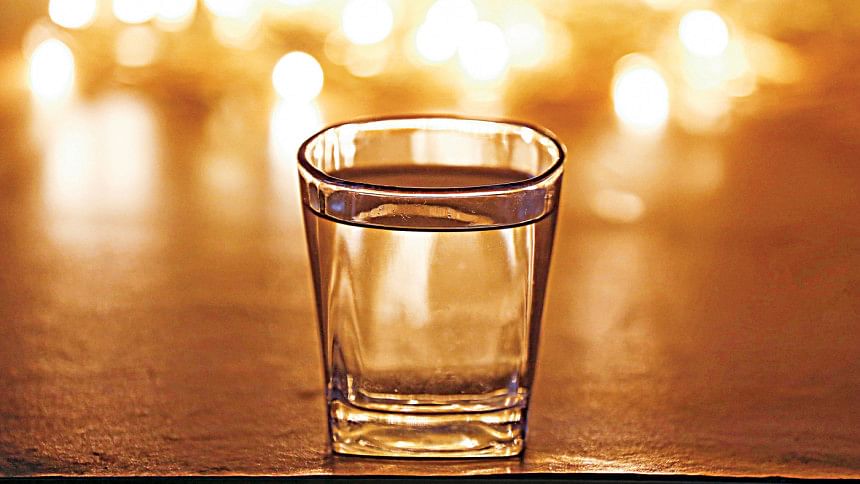Stay Hydrated, Stay Healthy

Legend has it that long ago, in ancient Bengal, lived a prince who wanted to find out the secret behind leading a healthy, disease-free life. Despite his destiny to be a ruler, he embarked on the journey to find the truth.
He travelled hundreds of miles, endured many hardships along his journey, yet he couldn't find the answer he sought. Finally, when he was about to give up his search and return to his kingdom, he found a sage resting beside a waterfall. Delighted, he got down from his horse, bowed respectfully and asked the wise man. The sage listened to the prince, then pointed towards the waterfall and responded in a serious tone, "Pani kha."
Fast forward to the 21st century, we are reminded to stay hydrated quite a few times every day, whether it is by our mothers or our fitness/workout apps. It is because drinking water is crucial to staying healthy and keeping our organs functioning properly. Water plays some very important functions within our body, such as regulating body temperatures, helping in the digestion of our foods, maintaining electrolytes, expelling toxins from our body and even aiding the transportation of oxygen to our cells. So, when we stop drinking sufficient amount of water, it means that less water is available within our body to carry out these important tasks and as a result, the body starts showing symptoms such as weakness, dryness of the throat, low blood pressure, dizziness and the most common of all – a dark urine.
The average human body is composed of 55 to 60 percent water. Water is present not only in our cells and in our blood, but also in our brain, lungs and heart. Even our bones, the hardest part of our body, are composed of about 31 percent water.
Now the question is, even though we have so much water in our body, how do we lose water?
Study suggests that through our sweat, urine, bowel movements and breathing, we lose about two to three litres of water every day. The weather and environment in which we live also play an important role in this regard, an example of which is we tend to lose more water during a hot summer day.
Okay, so how much water should we drink every day? According to the Harvard Medical School, there is no single accurate answer to this question because the water requirement for every person is different. For a long time, we have been told that we should drink eight glasses of water every day. Now, this conventional wisdom has been replaced by research suggesting that depending on our body weight and the environment, the recommended amount of water is between 2.5 to 3.7 litres for men and about 2 to 2.7 litres for women.
Staying hydrated is a must for leading a healthy life. Therefore, we should focus on optimal daily intake of water for our body to function properly.
References
1. Nacamulli, M. (2016, March). What would happen if you didn't drink water?
2. Harvard Medical School (2020, March 25). How much water should you drink?
3. Shubrook, N. (2019, December 19). What are the health benefits of drinking water?
H. Rainak Khan Real has set the goal of drinking optimal amounts of water from now on. Cheer for him at [email protected]

 For all latest news, follow The Daily Star's Google News channel.
For all latest news, follow The Daily Star's Google News channel. 



Comments